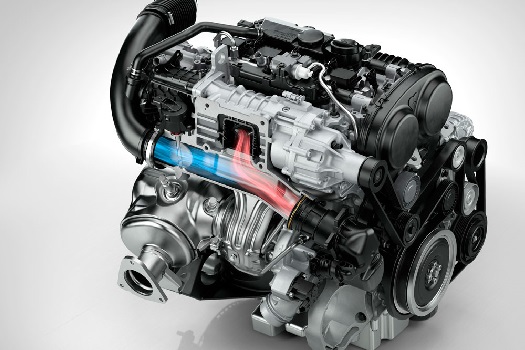

Volvo has finally confirmed that they are in development phase of three cylinder engines to meet the requirements of European Emission Vision 2021, and their newly developed engines will roll out any time after 2016. The company has also confirmed that their four cylinder Drive-E Volvo engines family will be rolling out by 2016.
Three cylinder engines will make their way in with 1.5 Litre 3-cylinder turbocharged layouts and it is expected that Volvo will use these engines to empower the S60 and V60 family, however there are words out that the mid-level XC SUVs will also benefit from these efficient engines.
Volvo is developing their brand image by introducing new technologies; they also have announced their long-term strategy and plans. In recent years, they have introduced several new modules like they have built nine of their models on the revolutionary Structured Product Architecture which is also known as SPA platform. Volvo also became the pioneer to use Cloud technology as warning system for road hazards, revolutionary phone controlled seats and now the most advanced and efficient three cylinder engines.
In the early part of next decade, Volvo is planning to go Hybrid with almost all their mainstream models and it is quite obvious that the new three cylinder engines will play a vital role as Hybrid drivetrains.
Derek Crabb is the global powertrain boss of Volvo and he speaks about the intentions behind introduction of three cylinder engines. In answer to the question, ”Are three cylinder engines any good?” he said that it is all about efficiency and tight emission standards and Volvo’s plan to shift on hybrids. Three cylinder Drive-E engines with petrol are expected first but he refused to speak out the number of variants to be built in future. “I see it (the triple) being possible in S60 but not higher,” Crabb said. “It’s not planned for the higher XC cars at the moment. It’s not the power. It’s more to do with the torque.” Volvo’s present average of CO2 emissions in Europe is 120g/km but they are looking forward to reduce it to 95g/km by 2020.